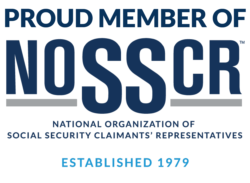SSA may change rule allowing consideration of English proficiency
by Eric Slepian
Since 1978, Social Security Administration regulations have recognized that a Social Security Disability Insurance applicant’s inability to speak English impacts whether there are jobs the person can do. In the SSDI (and Supplemental Security Income, or SSI) application process, English proficiency as part of educational background is weighed along with physical and mental limitations caused by their impairments, age and work experience. The SSA, however, has proposed changing this rule.
If the agency amends this rule, it will no longer consider that a claimant cannot speak English as relevant to the ability to work.
English ability considered at step five
We recently posted in this space a blog about the five-step process the SSA uses to analyze whether a claimant meets its definition of disability. The consideration of “inability to communicate in English” currently comes up only if the claimant makes it to the last step. At this step, the SSA uses the medical-vocational guidelines, known as “the grid,” to guide disability determinations.
The grid is a chart that analyzes how various combinations of these vocational factors impact the ability to work: education level, capacity to work after considering limitations caused by impairments (residual functional capacity or RFC), age and work experience. Under the grid rules, the SSA considers English fluency only if a claimant is at least 45 years old.
Proposed rule change
On Feb. 1, the SSA published notice that it was proposing this change, giving people until April 2 to submit comments for the agency to consider. The notice gives three main reasons for the proposal to drop English proficiency from the grid factors:
- Even if claimants cannot communicate in English, they may have completed high school or more in another language, which could “provide a vocational advantage.”
- There are more jobs for non-English speakers now, especially in occupations with lower skill requirements.
- English fluency of claimants living in U.S. territories or other countries where English is not the main language (such as Puerto Rico) would not be relevant.
As of this writing on June 24, the agency had not announced its final decision about whether to make the change and if so, whether it will modify its proposal in response to public commentary. Advocates are watching the outcome with concern.



